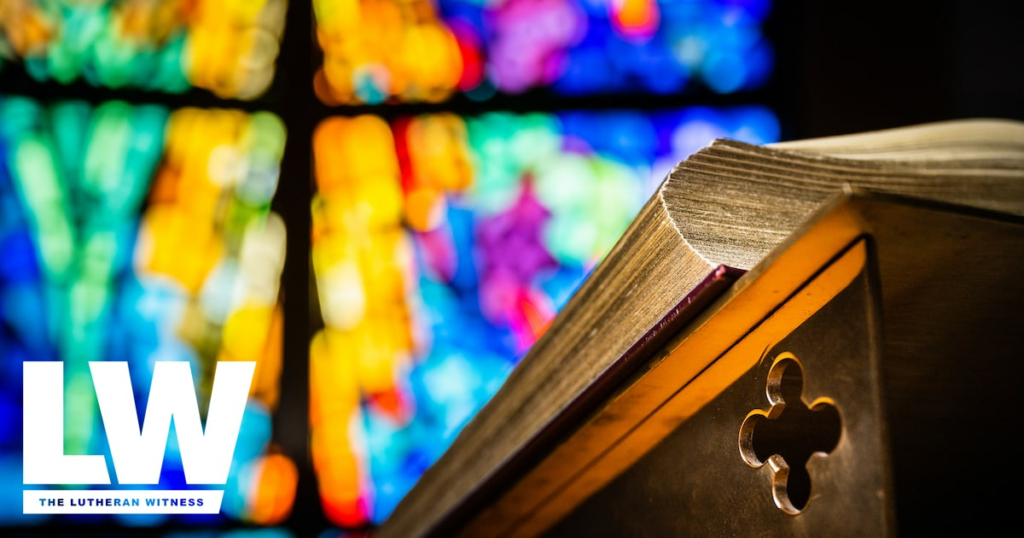Christmas can be difficult for those struggling with loneliness, depression or stress. How can you help your family find joy in Christmas this year?
by Dr. Beverly Yahnke
Many of us have enjoyed decades of Norman Rockwell Christmases with our families and friends, savoring special music, exquisite meals and festival worship while brightly wrapped gifts wait beneath breathtakingly beautiful trees. Yet, the world observes a different holiday agenda, beginning with Black Friday (a day not observed on our liturgical calendar). The world feeds our seasonal angst and can distract us from godly preparations for Christmas.
Many of us will spare neither effort nor expense to craft the “perfect Christmas.” We will ensure that none of our loved ones will be disappointed. The well-intentioned and healthy souls among us will cook, clean, bake, shop, wrap, write cards and letters, decorate and then shop and clean some more.
In the midst of our personal frenzy, we may not notice that for some, Christmas days won’t be merry and bright. Beginning with the well-roasted drumsticks at Thanksgiving and lasting well beyond the first tick-tock of the new year, many individuals and families struggle with depression, holiday “blues,” stress or anxiety.
The National Institutes of Health report that the incidence of depression is highest at Christmas. According to a Gallup poll, 96 percent of Americans celebrate the holiday in some way, yet nearly 45 percent of people responding to a survey reported that they dreaded Christmas. During difficult days, many simply long for the quiet nostalgia of Christmas past as they struggle through a series of joyless social and family obligations.
Colliding Expectations
There’s little mystery about the matter. The holidays can be a time of heightened stress for children and adults alike. Families travel, collide, revisit unfinished emotional business and challenge one another with an array of unreasonable expectations. Relationships that have been neglected or bruised throughout the year become a minefield at Christmas. Adults can indulge in excesses of eating, spending, drinking and party-going that result in holiday hangovers of pounds, debts and regrets lasting long into the new year.
Children, wanting to miss nothing, fuss in adrenaline-fueled bursts of behavior, requiring precious emotional energy from already depleted parents. Tears, tummy aches and sheer exhaustion invite special comfort. Even when parents set sensible limits on activities and bedtimes and try to maintain the child’s normal routines, the sheer excitement of special worship services, holiday play dates and prized visits from Grandma and Grandpa can be exhausting for everyone.
For those suffering with depression, it is a time to examine one’s life and to review one’s losses, failures and inadequacies. The depressed revisit unfulfilled dreams, disappointments and become further mired in despair, all the while comparing themselves to hoards of others all about who seem to enjoy happy and fulfilled lives. For those grieving the loss of a loved one, the painful presence of an empty chair at the family table is nearly unbearable. Worse, the inclination to hide one’s pain and grief from loved ones only compounds the sadness. We would all do well to be particularly patient and kind to one another in these days when many bear staggering personal burdens that remain invisible to us.
Glad Tidings
So, what about the season’s promised tidings of comfort and joy? The greater our family’s desire to embrace the genuine gifts of Advent, the more likely we are to be rightly prepared to receive the godly gifts of Christmas. Advent is an essential time for repentance and prayer. Advent is the time to get the home of our hearts ready for Christmas. Advent underscores the threefold theme embracing the coming of Christ!
We embrace the Savior as He comes to earth in baby flesh for the forgiveness of sins. We rejoice in the Christ who comes to us in Word and Sacrament to give us life and salvation, and we await the Triumphant Christ who will return again in glory. Advent repentance prepares us to receive in joy the forgiveness of all of our sins, for Jesus’ sake. We read Scripture, light candles on the Advent wreath, count the days of the season with Advent calendars and wrap ourselves and our family in God’s blessings. We prepare to receive all that God has promised.
The Perfect Gift
Let us spare no effort to remind ourselves and teach our children to look upon His coming with both awe and reverence once again. Advent gives way to Christmas and the perfect gift is given. For those among us who grieve and suffer, there is Good News too, and we can seek to comfort them. No matter how one’s heart may ache, worry or grieve, the “hopes and fears of all the years are met” in the perfect God-Child, and the dear Christ enters in. It is Christ, the Perfect Gift, who gives us His peace in the face of all travail, sadness and uncertainty, forgiving us all of our sins and providing everything needed to sustain us one day at a time through each of the days of Christmas and beyond. Christmas is an awe-full time, indeed. Come, Lord Jesus!
—
> In 2010, Rasmussen Reports noted, “45% [of Americans] are having difficulty getting in the holiday spirit.”
About the author: Dr. Beverly Yahnke (byahnke@doxology.us) is the chair of Social Sciences at Concordia University Wisconsin and executive co-director of Doxology.
December 2011






